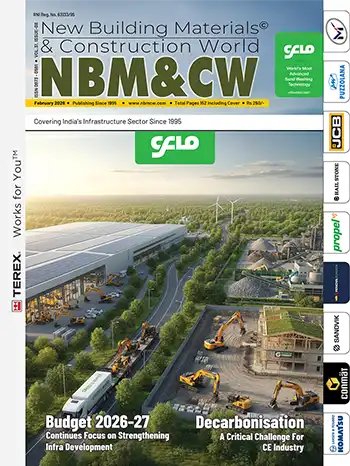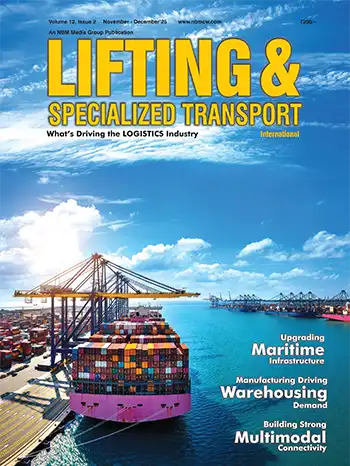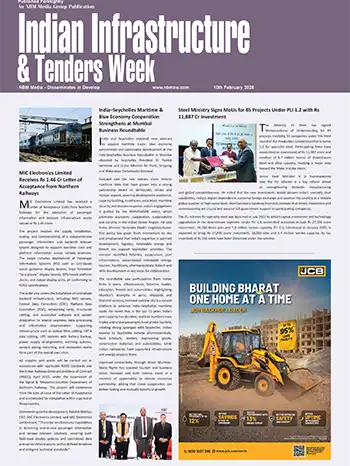
As cities compete globally, the Smart City has been touted as the important new strategic driver for regeneration and growth. The concept of Smart Cities in India has become a reality amidst shifting technological trends and is pegged for tremendous growth. With consistent efforts to integrate technology in all aspects of public life in addition to focusing on a sustainable ecosystem, Smart Cities are set to witness progress and receive support for faster implementation. Smart Cities are employing information and communication technologies in the quest for sustainable economic development and the fostering of new forms of collective life. This has made the Smart City an essential focus for engineers, architects, urban designers, urban planners, and politicians, as well as businesses.
The increasing technological knowledge of consumers and availability of real-time data will accelerate the process to a large extent. Sectors such as healthcare, public sector and utilities, transport are set to be revolutionized with an equal stress on security systems to ensure a safe environment alongside a seamless one.
The COVID-19 pandemic, mounting sustainability commitments, resource constraints and continued urban growth are making a new case for investment. It has never been more crucial to make cities smarter, more efficient, and sustainable for their residents.
Enabling technologies
The accelerated development of new technologies including 5G, AI, cloud, and edge computing is helping to drive the evolution of Smart Cities. We are in the early stages of an edge computing revolution and it is critical to support the exponential increase in the number of connected devices, and vast growth in data collected. Investment in reliable technology and high-speed connectivity is central to Smart City build out. The expedited shift to work from home in 2020 is driving the need for reliable and secure high-speed connectivity. As vital infrastructures become connected, cities must be aware of vulnerabilities to adversaries. Telecom and technology companies must increasingly collaborate with governments and invest in reliable networks, cyber security and backup systems.
Buildings and construction
Decarbonising the sector is one of the most cost-effective ways to mitigate climate change. Commercial buildings account for 20% of energy use in the US, 30% of which is wasted. Smart solutions can transform them into energy-efficient and sustainable buildings whilst also automating the way they are managed.
With all buildings required to be net-zero carbon by 2050 to meet the goals of the Paris agreement, the demand for smart buildings is only increasing. Government policies, teamed with financial incentives for companies to invest in smart buildings, are crucial to help transition toward accessing major energy savings whilst improving energy services.

Improved energy sourcing, management and deployment
With cities consuming over two-thirds of the world’s energy, there is immense pressure to transition to lower-carbon energy systems. Investment in smart technology can speed the transition, whilst bringing economic growth and competition, also significant investment in smart grids, next-generation energy transmission, and distribution networks that can automatically monitor energy flows and adjust to changes in supply and demand accordingly.
Smart water and waste management
Access to clean water and the ability to treat wastewater are growing concerns for cities, along with how to better manage waste. Water losses and flooding are also an increasing threat, with the impacts of climate change and rapid urbanization. Urban planners are being forced into upgrading ageing drainage systems. That need is bringing smart solutions to the fore, including leakage and pollution detection and predictive maintenance planning.
Sustainable, resilient cities bring benefits to residents and investors
The volume of stakeholders in cities has served as a barrier to progress. But thanks to new business models and pressure to meet sustainability commitments, these public infrastructure projects should attract private investment. With this approach, cities won’t be just smart – but sustainable and resilient for the people living in them, adding to their investment potential.
The Smart City investment is slated to peak $158 Billion by 2022 with the Americas leading the revolution. Public sector and visual surveillance will have the maximum investment. Water, transportation, financial services will be managed by AI and IoT. There will be focus on energy conservation and sustainability to tackle the problem of scarcity of resources. The healthcare and real estate sector are expected to witness a major boom owing to increased focus on public health and smart living. Consolidation of technologies is what most smart cities will run on. The Asian countries with the majority of population and its adaptability to a smarter and better environment will comprise a major chunk of the Smart City revolution by 2023 and India will be a frontrunner in this revolution.















